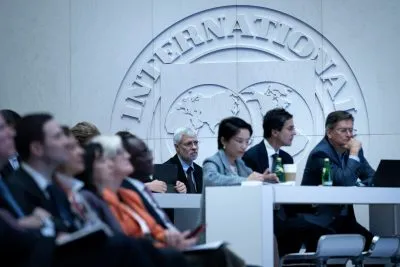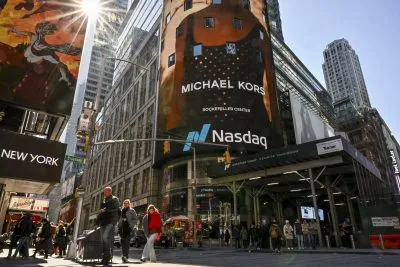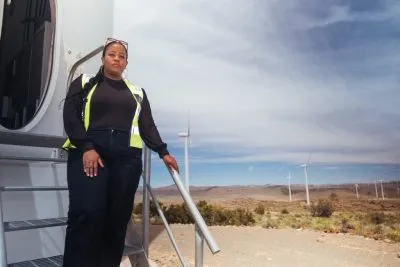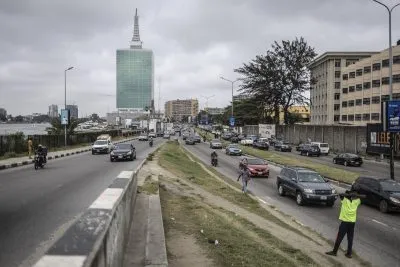The Abraaj Group is the largest private equity investor in a swathe of geographies across the southern hemisphere. Group Chief Executive Arif Naqvi tells Anver Versi why global economic growth depends on Africa.
Arif Naqvi dislikes the term ‘emerging markets’. “It is condescending to call them so,” he says. “They are ‘Growth Markets’.” To underline his thesis, he points out that two thirds of new global growth is from this group of countries. “It is this group that is fuelling the economies of the industrialised world.” He should know.
Arif Naqvi is no academic number-cruncher. He is the Group Chief Executive of The Abraaj Group, which is the world’s largest private equity investor in growth markets with $7.5bn in assets under management. He established the company in 2002 and has returned around $4bn to investors. He is a man who puts his money where his beliefs are and his belief that Africa is primed for great things is unshakeable. “Africa is vital to the growth of the global economy,” he says, “and an essential component of growth markets.” In Naqvi’s lexicon, growth markets stretch from Latin America, through sub-Saharan Africa, the Middle East and North Africa, Central Asia, South Asia to East Asia.
Abraaj has 36 offices managed through six hubs, one in each region. It has made over 200 investments in 50 countries and achieved over 60 full and partial exits. Naqvi reels off an impressive set of figures to substantiate why he insists on calling the South-South axis growth markets: 19 of the 30 largest economies by 2050 will be from this group; they will account for 70% of global consumer spending growth between 2010 and 2020; they constituted 90% of urban population growth in 2012; they will provide an additional 1.4bn middle class consumers by 2020; 423 cities in this group will account for over 45% of global GDP growth between 2007 and 2025 and the value of infrastructure investment required over the next 20 years will amount to $40 trillion.
While the figures may be mind-boggling, the investment opportunities they represent are mouth-watering. And Africa is right in the thick of things. “The world has erroneously looked at Africa as a development challenge,’ says Arif Naqvi. “They have perceived it as erratic, un- stable, corrupt – and all the focus has been on governance.” But, he says, the new view of Africa that is emerging will replace all this negativity. “The pace of reforms taking place on this continent is faster than anywhere else on earth. It is home to half of the 10 fastest-growing economies in the world.
Moreover, the emphasis on Africa’s resources is misplaced – resources do not employ people or generate this sort of growth. In fact, growth in the non-oil sector has been 5% over the last five years.” Naqvi says that it is all a matter of perception – what are seen as deficits in Africa are often precisely the most promising areas of growth. “There are tremendous long-term investment opportunities in infrastructure, for example,” he points out. “Africa also has the fastest-growing middle class in the world – there are more middle-class families in Africa than the entire population of the US but there are more credit cards in Italy than in the whole of sub-Saharan Africa!
Only 25% of Africans have bank accounts, which means that 75% of those who wish to have bank ac- counts are not being catered for. Can you ask for a better investment opportunity?” delivering social goods He goes on to tick off several other gaps, including in healthcare and education. With The Abraaj Group’s formidable experience in growth markets to fall back on, Naqvi is very clear on the direction required. “There can be no debate about needs. They exist and they need to be satisfied. The only question is on how to do so. People should not have to wait forever.” He is equally clear that it is the private sector, working when required to do so with the public sector, that will deliver the social goods that are so urgently needed in growth markets.
“Stop complaining that the government is not delivering on this or that. Governments cannot, do not and will not be able to fill all the gaps. The private sector must come in and provide what the people need. Governments can make the process easier and quicker by ensuring that the working and business environment is conducive and that bottlenecks and other obstacles are removed.” Naqvi points to a list of its investments in companies that have made impressive inroads in providing much-needed social goods.
“We have done it repeatedly in Turkey, Thailand, Mexico, Pakistan and Egypt. We know how to do it.” Last year, Abraaj acquired Aureos Capital, which was spun out of the British government’s CDC and which specialised in invest- ing in small and medium-sized companies in Latin America, Asia and Africa. The acquisition has provided Abraaj with what Naqvi calls “the deepest bench of private equity experience across growth markets”. The Abraaj Group now manages 25 sector- and country-specific Funds comprising private equity investments of between $10m and $100m in around 150 partner companies involved in manufacturing, education, retail, aviation, oil and gas, financial payments infra- structure, healthcare and agribusiness.
Collectively, Abraaj’s partner companies employ over 200,000 people worldwide. One of its current partner companies is Network International, the largest independent payment solutions provider in the Middle East and Africa. In Kenya, Brookside Dairy, a partner company is the largest dairy in East Africa. In addition to selling to the domestic mar- ket, Brookside exports to Tanzania, Uganda, Rwanda, Burundi, Egypt and Mauritius. Since the time of Abraaj’s investment, Brookside’s milk intake has increased by 17% to 600,000 litres per day through its increased outreach to small-scale suppliers in the region.
Brookside sources 95% of its milk from over 145,000 local subsistence farmers, cooperatives and farmer groups on a daily basis. Also in Kenya, The Abraaj Group invested in Nairobi Women’s Hospital through its Africa Health Fund, which was launched in 2009 with support from the International Finance Corporation, the Bill & Melinda Gates Foundation, DEG and the African Development Bank. “The objective of the Fund is to help low- income Africans gain access to affordable and high-quality healthcare. Abraaj’s investment in Nairobi Women’s Hospital has enabled it to expand from one 61-bed facility to a network of three hospitals and 226 beds,” says Naqvi.
Despite the huge strides that Africa has made, Naqvi concedes that several factors, such as deeper and better education to improve human capacity, a more coordinated approach to infrastructure, increased intra- African trade, more support to SMEs and budding entrepreneurs and a greater willing- ness of national and municipal authorities to work in tandem with the private sector will have to fall into place before the continent can really take off. “Nevertheless, I believe that come 2050, most of sub-Saharan Africa will be middle class. All the building blocks are there – it’s just a question of putting them together,” says Arif Naqvi, as he and his company set about connecting the blocks.
Arif Naqvi – Making a Difference
With over 25 years’ experience of investing in public and private companies, Arif Naqvi established the Abraaj group in 2002 in Dubai and it has quickly emerged as the largest private equity investor in growth markets. He is a graduate of the London School of Economics and Political science.
He is a board member of the UN Global Compact, Pakistan human development Fund and Chairman of the british asian trust advisory committee – Pakistan. He also serves on the board of the emerging markets Private equity association, IMD Foundation, endeavor global and the advisory board of Columbia University’s Middle East research Centre.
He has received several awards including the Sitara-i-Imtiaz, a civilian honour awarded by the government of Pakistan. He was named one of the 50 most influential people in the global private equity industry by Private Equity International. In 2008, with his family, he established the Aman Foundation, a social sector enterprise which supports sustainable development in healthcare, nutrition and education.
He is a co-chair in this year’s WEF on Africa. he says the WEF is one of the world’s greatest organs for debating issues of global significance and actually making a difference.
Want to continue reading? Subscribe today.
You've read all your free articles for this month! Subscribe now to enjoy full access to our content.
Digital Monthly
£8.00 / month
Receive full unlimited access to our articles, opinions, podcasts and more.
Digital Yearly
£70.00 / year
Our best value offer - save £26 and gain access to all of our digital content for an entire year!

 Sign in with Google
Sign in with Google 





